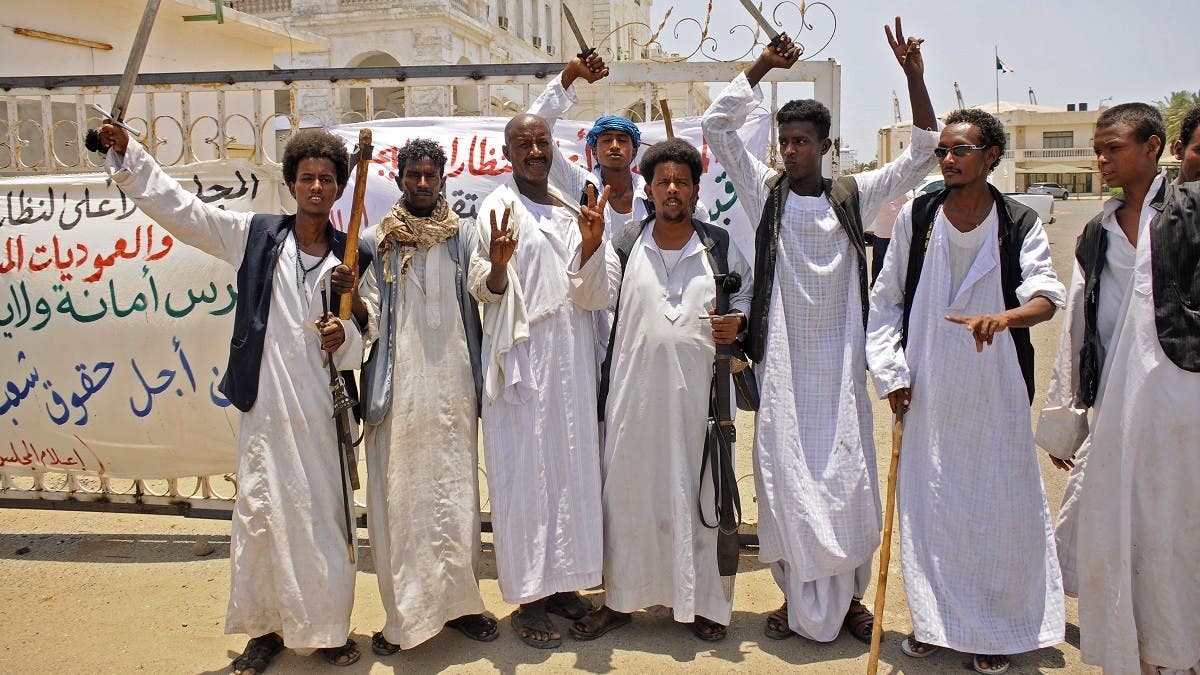Heavy fighting in Sudan’s west and south has killed at least 27 people and left dozens wounded, residents said Tuesday, with the United Nations envoy saying he was “deeply concerned.”
In separate incidents, clashes broke out in the restive Darfur region in a bitter land dispute, leaving 16 dead, as well as in South Kordofan state, where 11 people died after an argument between two people reportedly escalated into wider gun battles.
For the latest headlines, follow our Google News channel online or via the app.
The latest violence comes as Sudan grapples with the fallout from a coup in October last year led by army chief Abdel Fattah al-Burhan.
In West Darfur, the arid region of Sudan bordering Chad, fighting took place near Kolbus, some 160 kilometers (100 miles) from the state capital El Geneina. Attackers set fire to villages leaving them burned to the ground.
It is the latest in several rounds of clashes pitting largely settled farmers against semi-nomadic Arab pastoralist groups.
“Fighting erupted over a land dispute between member of an Arab tribe and a farmer from a non-Arab one,” said a leader from the non-Arab Gimir people. “The clashes killed eight people from Gimir, and three villages were burned.”
A leader from the Arab Rizeigat community said fighting began over a dispute over land.
“Eight of our people were killed,” he said. “Clashes are ongoing.”
In South Kordofan, fighting erupted between rival Arab groups – the Hawazma and Kenana groups – near Abu Jebeiha.
“At least 11 people were killed and 35 wounded in fighting,” said one resident, who is involved in mediation efforts between the rivals.
He said fighting began as a dispute between two people, but spread into clashes between the groups.
“I am deeply concerned about inter-communal clashes,” UN special representative Volker Perthes said Tuesday, over the fighting in South Kordofan.
“I call on security forces to secure the area and ensure the protection of civilians, and urge local leaders to undertake mediation efforts.”
Both Darfur and South Kordofan suffered heavily during decades of civil war during the three-decade rule of president Omar al-Bashir, who armed some Arab groups to fight ethnic minority rebels demanding an end to marginalization by his Arab-dominated regime.
The scorched-earth campaign left 300,000 people dead and displaced 2.5 million, according to the United Nations.
While key rebel groups signed a 2020 peace deal, deadly clashes still erupt over land, livestock, access to water and grazing.
The regions remain awash with weapons, and have seen a renewed spike in deadly violence in recent months, fanned in some areas by intense droughts and creeping desertification.
In April, more than 200 people were killed in clashes between Arab and non-Arab groups in West Darfur.
In another development, a coalition of tribes in East Sudan announced on Tuesday the end of a sit-in which blocked roads to the crucial Red Sea port, after the governor announced his resignation.
The Port Sudan sit-in protested a 2020 peace deal the country’s Beja tribes say made too many concessions at the expense of their group, which has long complained of marginalization.
Hundreds of protesters demanded the parts of the deal relating to their eastern region be scrapped and the dismissal of Red Sea state governor Ali Abdullah Adroub, whom they accused of supporting the deal.
The governor announced his resignation in a statement Tuesday.
The coalition of Beja tribes then released their own statement declaring an end to “all the sit-ins in eastern Sudan, after the resignation of the Red Sea State governor was confirmed,” without reference to other demands.
The 2020 Juba Agreement was a landmark accord between rebel groups and a military-civilian transition government which came to power shortly after the April 2019 ouster of al-Bashir.
But Sudan’s eastern Beja people, who number more than 4.5 million, have criticized the fragile peace agreement for not representing them, and intermittent protests have demanded parts relating to their impoverished region be scrapped.
In September last year, protesters from eastern communities led similar demonstrations against the same agreement.
The ensuing six-week blockade worsened Sudan’s already struggling economy by exacerbating fuel and wheat shortages, heaping pressure on the transitional government of then-prime minister Abdalla Hamdok.
Port Sudan, the country’s main seaport and vital trade hub, was reopened in November following a coup by army chief Abdel Fattah al-Burhan which upended Sudan’s fragile transition to civilian rule.
In December, Sudan’s sovereign council suspended parts of the 2020 peace deal relating to the east pending discussions, but protesters in Port Sudan told AFP on Monday their demands had not been met.
Read more:
Sudan civilian bloc reject post-coup crisis talks with army
Sudanese protester shot dead in Khartoum after state of emergency lifted: Medics
UN extends Sudan mission amid anti-coup protests

 World3 years ago
World3 years ago
 World3 years ago
World3 years ago
 Business1 year ago
Business1 year ago
 Entertainment7 years ago
Entertainment7 years ago
 World7 years ago
World7 years ago
 Entertainment7 years ago
Entertainment7 years ago






